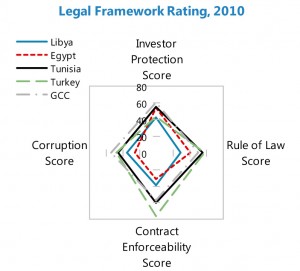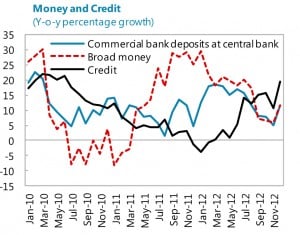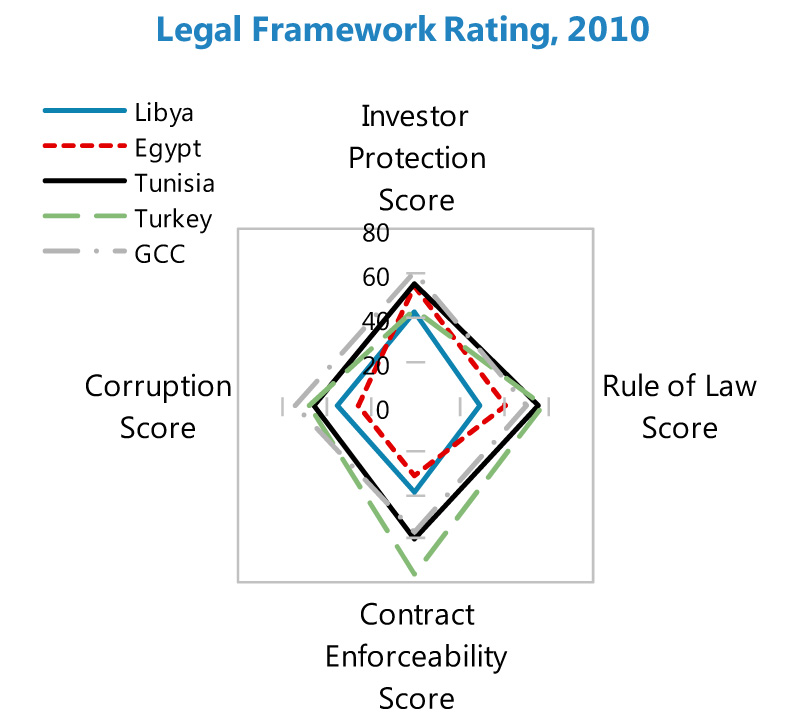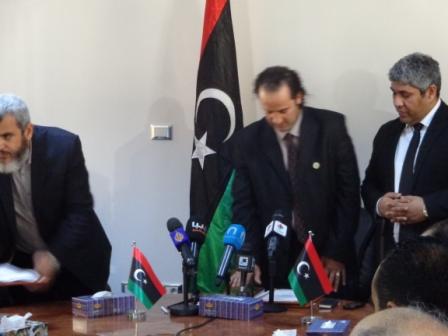By Sami Zaptia
Tripoli, 12 February 2014:
The Libya Trade and Infrastructure Finance conference was held in Istanbul, Turkey on February 6 which . . .[restrict]was attended by a host of top international and Libyan speakers, including the Deputy Governor of the Central Bank of Libya (CBL), the head of Libya’s National Oil Corporation (NOC) , the Tripoli Chamber of Commerce, the Libyan Foreign Bank, Libya’s privately owned Aman Bank, as well as the British Arab Commercial Bank, Clyde and Co, the Maghreb Group and Hill International.
Various topics relevant to trade and infrastructure finance were discussed during the one-day conference, including Libya’s banking sector, the role of the private sector, the regulatory framework and the oil and gas sector.
A number of speakers and participants from the Libyan and international banking sector urged the CBL of Libya to do more to help guide and regulate the Libyan banking sector. In response, Ali Mohamed Salem, Deputy Governor of the CBL acknowledged that the banking sector was coming from a low starting base and had much to do.
He said that the fact that there had not been many new regulations issued by the CBL since the revolution was not because they were being inactive; it was more a case of spending time on these regulations to get them right. He expected that a number of new banking laws, regulations and policy directions would be issued during the course of 2014.
Deputy Governor Salem also noted that there had been extensive discussions between the Ministry of Economy and the CBL in order to establish the demarcation between the supervisory functions of the Ministry and those of the CBL.
Finally, Salem did acknowledge that the 2015 deadline for banks to convert to Islamic lending structures was very ambitious and he was sympathetic to the point forcefully expressed by a number of the conference participants that it would take many years to effect such a systemic change in the Libyan banking system.
Farrukh Raza, Director of the UK’s Islamic Finance Advisory & Assurance Services Company highlighted that only three countries in the world, namely Iran, Pakistan and Sudan, have a fully converted system. He urged Libya either to take its time to set such a system up properly, or facilitate a system that allows for parallel conventional Islamic and conventional banking products to exist, as is the case in most Islamic states, such as Malaysia and the GCC countries.
In any event, Raza said that adoption of Islamic banking, whether as a single or parallel system could only work if extensive training of banking and finance workers takes place. He, therefore, urged the Libyan government to ramp up its Islamic finance training.
Naaman Elbouri chairman of the privately-owned Libyan Saraya Bank urged the governmental instrumentalities to start utilising the services of some of the smaller privately owned banks for their banking services.
At present, most government banking is still undertaken almost exclusively through the large state owned banks. He stressed that competition was good for the banking sector and would result in all banks improving their offering.
Elbouri was also very bullish on the current opportunities for the private sector in Libya, but acknowledged that Libya would not be able to attract FDI unless Libyan businesses co-invested alongside international businesses. International investors needed to see that their Libyan partners were also prepared to share the same investment risks as them.

With regards to the effect of the sudden introduction of Islamic banking into Libya, a concern was expressed about the negative impact upon the financial performance of the large state owned banks if they were no longer permitted to put their money on overnight deposit because of the ban on interest payments as from 2015.

This is currently the primary source of revenue for the banks and if that is taken away from them in 2015, then they will move into the red. Other sources of income must be identified for the banks and customer deposits must be put to good use if they are to survive in a “non interest paying environment”, it was pointed out.
The future role of the Libyan government was also discussed at some length. There was a consensus that the government should stay out of development type work in Libya. It should set policies and act as sector regulator, rather than undertaking the project development role themselves.
Mrs Ibtisam Ben Amer, prominent Libyan businesswoman and member of Tripoli Chamber of Commerce, urged the Libyan government to do more to support Libyan SMEs and expressed some concern that too much emphasis was being placed on the mega projects and courting investment from large multinational companies.
Adrian Creed, partner at law firm Clyde and Co, which has an office in Tripoli, updated the conference on the status of Libya’s PPP initiative and noted that this was one tool to encourage the development of both the local and international private sector in Libya.
Some scepticism was expressed about whether Libya is ready to go down the PPP route and it was accepted that in order for this initiative to gain traction the Libyan government needed to be able to issue sovereign guarantees to support project revenue streams if those revenue streams were derived in whole or part from government usage of a particular asset.
Nuri Berruien, Chairman of the NOC updated the conference on the status of the oil and gas sector. He mentioned that a new EPSA is under development, as is a new Petroleum Law. International experts were being consulted to make sure that Libya developed a model that was in line with international best practice.
The government is endeavouring to strike a balance between maximising revenues for the Libyan state and attracting top tier International Oil Companies (IOCs) to participate in the next round of bidding. He acknowledged that security was a very big issue for the IOCs at the moment, and that the IOCs would not come unless and until they felt that it was safe for their personnel.
The NOC head also re-emphasised that Libya still has a very compelling upstream story, including the untapped market for “unconventional hydrocarbon plays”. The current political and security impediments did not change the longer term story and Libya remains a compelling hydrocarbon opportunity.
He also re-emphasised the need for Libya to capture more value from the hydrocarbon chain. It needed to do more than just export crude. It needed to develop the midstream and downstream sectors in order to maximise the revenue achieved on each barrel of oil, he explained.
For more details see: http://www.exportagroup.com/pdfs/brochure/Libya_2014_Brochure_Feb3.pdf [/restrict]









